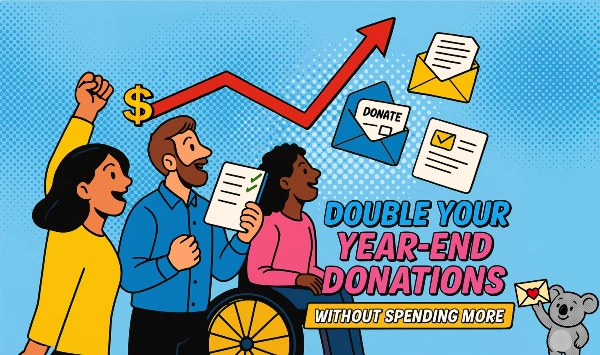Major donors are different.
But not for the reasons – or in the ways – we usually expect.
In fact, Jen Shang, after talking to a lot of wealthy major donors about why they donate, has something to say about major donor fundraising that might shock you: “It’s not about impact. It’s about meaning”.
Wait. What?
Not about impact?
The entire theory behind a lot of major donor fundraising is that they are more focused on impact than others. That they need details – about the problem, the solution, the activities, even the budgets – and they want it all. Some fundraisers go as far as to say major donors are much less emotional in their giving, treating it more as an investment than an act of philanthropy.
Well, hear Jen out.
She and co-author Adrian Sargeant have published a book on the reasons major donors give: Meaningful Philanthropy: The Person Behind the Giving. They interviewed dozens of very-high-end philanthropists about their giving – what motivated them and kept them donating.
I was both surprised and un-surprised by what they discovered.
Surprised because it turns out major donors are very much like all donors in their giving motivations. They just have larger balances in their accounts. And they are used to having a lot of contact with the organizations they support.
Unsurprised for exactly the same reason: major donors are very much like all donors. They don’t transform into a whole new psychological being as their wealth increases.
So what does this research mean to you and your major donors?
It might steer you in a powerful new direction. Here’s what Jen Shang says we should reconsider about major donor fundraising:
We have often focused too much on short-term metrics and transactional giving. We go to donors with offers like: Your donation of $2 will help feed a hungry child. For major donors, that becomes Your donation of $20,000 will help feed 10,000 hungry children.
That’s a start. But it often causes us to miss opportunities to create deeper meaning for donors.
Instead, we should focus on nurturing donor relationships and helping donors take “ownership” of causes, rather than just solving problems.
That means encouraging donors to involve themselves more deeply with the causes they support. Instead of setting up a situation where donors can swoop in an “rescue” someone in need, they can actually care – and care deeply – with others.
Shang calls this applying the principles of love and meaningful relationships, rather than applying tactics to problems…
Fundamentally, donors (like everyone) seek love. If the world can become a place where donors and the communities they want to help love each other. That’s what donors want, isn’t it?
That doesn’t mean the tactical statements go away. Donors will give money to accomplish meaningful goals. But the whole discussion becomes deeper. We balance our financial goals with the deeper goal of nurturing long-term donor relationships – between us and donors and between donors and the people they help.
With major donors, this means talking about the cause and the potential donation not as a one-dimensional problem with some kind of one-and-done solution. Instead we help them see the cause as a need for transformation and human connection. We tell them stories about real people, full-dimension humanity, and the systems people live in. It means a lot of communication.
It also means talking to the donors about themselves: Who they are, what they have been through, what they want for themselves, their families, and the world.
You may be thinking, “This isn’t just a donor thing” – and you’d be right. It’s a fundraising thing. The difference with major donors is that we can afford to spend more time with each donor, learning about them and giving them the stories and connections that matter most to them.
With other donors, we do the same thing, but on a group level. We do our best to understand the beliefs and experiences of donors and to be significant and relevant for them.
If you are involved in major donor fundraising, I strongly urge you to read Jen’s new book. You’ll be surprised how very human these donors are … and you’ll get a new energy for connecting with them in meaningful ways.
To be a great fundraiser, there are six foundations that can power your work. Each foundation is important, but it’s when you put them to work together, they can send your results skyrocketing! Find out how at our free online workshop, The 6 Keys to Massive Nonprofit Fundraising Growth. A must-not-miss!
Related Blog Posts:











